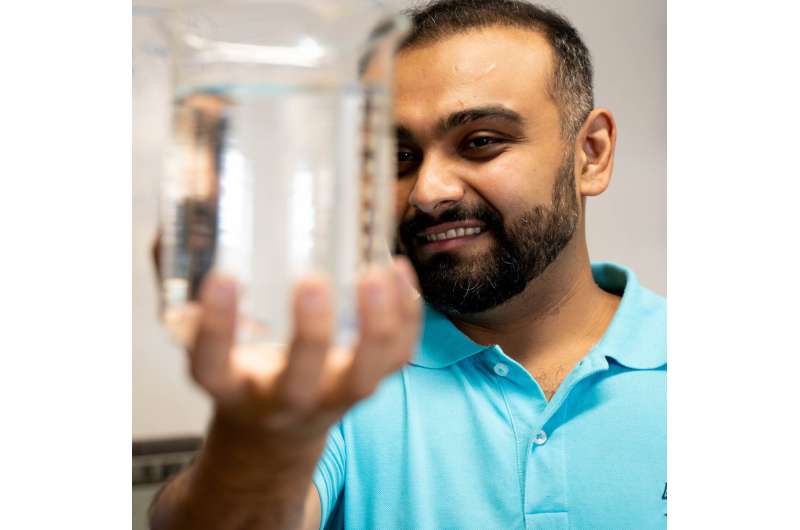This article has been reviewed according to Science X's editorial process and policies. Editors have highlighted the following attributes while ensuring the content's credibility:
fact-checked
peer-reviewed publication
trusted source
proofread
Engineers examine safe drinking water management strategies

While residents in California are still dealing with damage from last month's floods—after years of devastating droughts—UBC Okanagan engineers are looking at better ways to manage the delivery of safe drinking water to homes.
Their research was conducted in the School of Engineering's Life Cycle Management Lab in collaboration with Universite Laval. It was published in the January edition of the Journal of Environmental Management.
Things to consider include a changing climate, costs and sustainability.
Dr. Haroon Mian, a Postdoctoral Research Associate with UBCO's School of Engineering, says municipalities and water utilities all have drinking water management strategies to ensure the water they provide is safe and plentiful. However, a natural disaster, a breach in the supply or contamination at the treatment plant can put water supplies—and human health—at risk.
"Freshwater is essential to sustain ecosystem health and our survival," says Dr. Mian. "But Earth's once plentiful freshwater resources are now under increasing pressure due to population growth, urbanization and climate change."
As water supplies become more threatened, not only is providing safe water a priority, but suppliers must also ensure that doing so will have low environmental and economic implications.
"The quality of drinking water is contingent on several important attributes such as water extraction, treatment, delivery, cost and the disposal of used water," says Dr. Mian, who conducts research in UBC's Life Cycle Management Lab. "Those factors can all be impacted by climate change. And they have a significant environmental influence in terms of natural resource depletion, waste generation and greenhouse gas emissions."
Dr. Mian and his fellow researchers have developed an integrated assessment framework that combines water quality with lifecycle assessment techniques. Working with data from small and medium-sized communities, they provided a way to assess the long-term applicability of water systems that can provide safe drinking water to people.
According to Dr. Mian, the framework provides a different lens into a more holistic view of drinking water management and its components.
"We measure factors such as water quality, changes to the environment and potential costs to determine performance data and benchmarking, thereby providing important tools to ensure these systems experience long-term effectiveness and sustainability," he adds.
Through assessment and management of these key factors, water can flow to a community at a reasonable cost while conserving natural resources and ensuring environmental protection.
The study evaluated the overall performance of several water distribution systems by combining the above-mentioned criteria. Water distributors can apply the framework to determine the best distribution management system that will provide safe drinking water to their consumers with minimal environmental and economic costs.
The framework continues to be tested to ensure it is flexible based on any setting, community or system.
"There are no perfect decision-making techniques. The results often vary based on the available data and assumptions," Dr. Mian adds. "But this framework can be useful for all water distributors."
More information: Haroon R. Mian et al, Drinking water management strategies for distribution networks: An integrated performance assessment framework, Journal of Environmental Management (2022). DOI: 10.1016/j.jenvman.2022.116537
Journal information: Journal of Environmental Management
Provided by University of British Columbia





















